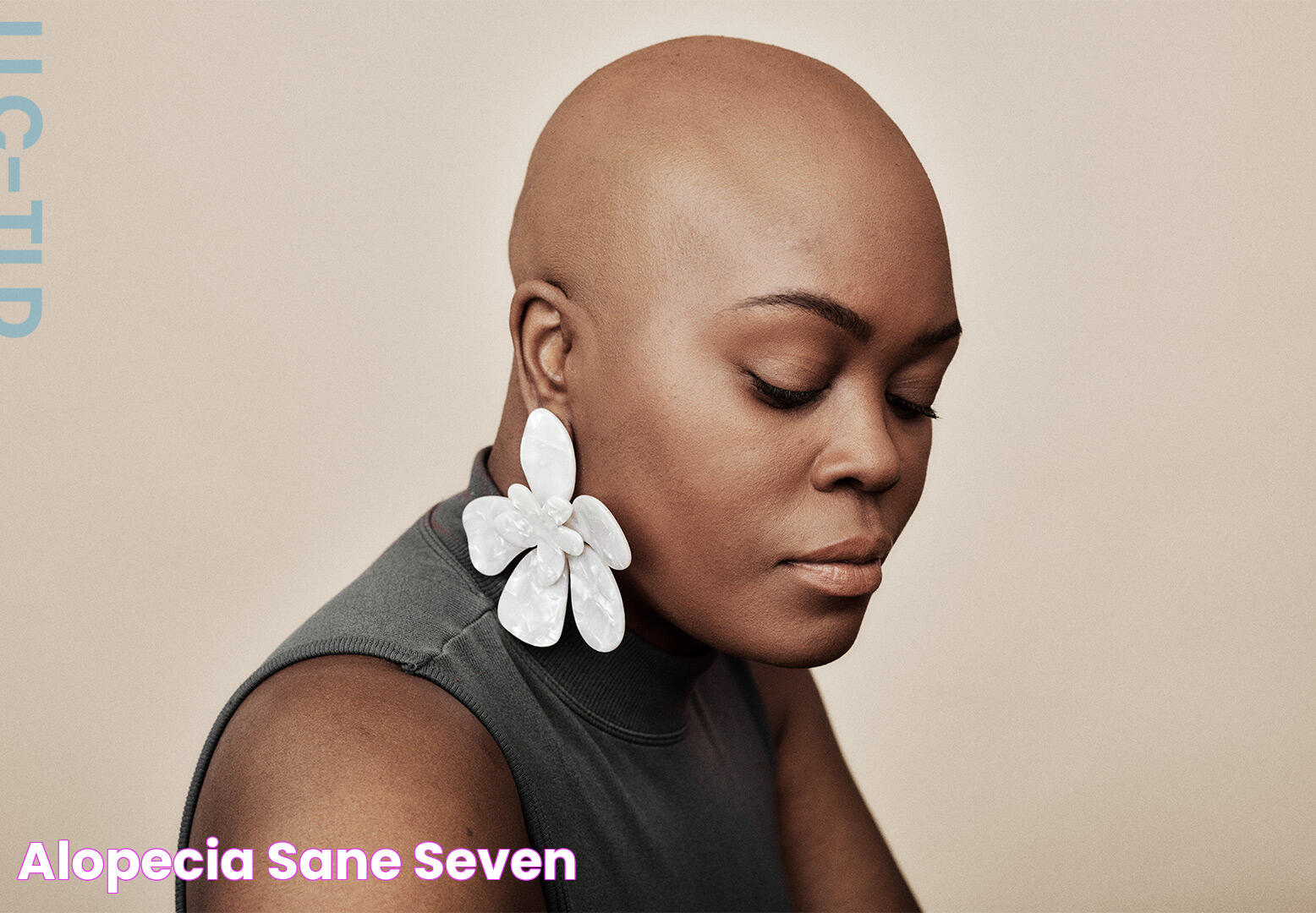Hair loss is a sensitive topic for many, but humor can be a great way to cope with the challenges associated with alopecia. Alopecia jokes, when delivered with care and sensitivity, can bring a light-hearted twist to a condition that many find difficult to discuss. Through humor, individuals experiencing hair loss can find solace and strength, and even those without the condition can gain a better understanding of what it means to live with alopecia. Whether you're looking for a chuckle or trying to break the ice on a delicate matter, alopecia jokes may be the perfect way to bring people together in laughter.
Alopecia is a condition that affects people of all ages and backgrounds, leading to partial or complete hair loss. While the experience can be daunting, humor often serves as a powerful tool for coping. Alopecia jokes, when crafted thoughtfully, can serve as a means to connect with others and to foster a sense of community among those who share similar experiences. With the right approach, these jokes can be both uplifting and educational, offering insights into living with alopecia while providing a moment of levity.
Embracing humor in the face of alopecia doesn't mean making light of the struggles associated with hair loss. Instead, it offers a new perspective that can promote healing and acceptance. Laughing about alopecia through jokes not only helps those who are directly affected by the condition but also educates others about the realities of living with hair loss. By sharing jokes in a respectful and thoughtful manner, we can all learn to see the lighter side of life, even when faced with challenges.
Read also:Is Lucci In Jail The Current Status And Details
Table of Contents
- What is Alopecia?
- Why Do People Make Alopecia Jokes?
- The Impact of Humor on Alopecia
- How to Tell Alopecia Jokes Sensitively?
- Alopecia Jokes and Social Media
- Famous Personalities with Alopecia
- How Can Humor Help with Hair Loss?
- The Role of Alopecia Jokes in Awareness
- A Collection of the Best Alopecia Jokes
- Are Alopecia Jokes Appropriate?
- Tips for Creating Your Own Alopecia Jokes
- The Cultural Perspective on Alopecia Humor
- Can Alopecia Jokes Promote Inclusivity?
- Frequently Asked Questions
- Conclusion
What is Alopecia?
Alopecia is a medical condition characterized by the loss of hair from the scalp or body. It can affect individuals of any age and gender and may result in varying degrees of hair loss, from small patches to complete baldness. There are several types of alopecia, including:
- Alopecia Areata: An autoimmune disorder that causes patchy hair loss.
- Alopecia Totalis: A more advanced form of alopecia areata that leads to the loss of all hair on the scalp.
- Alopecia Universalis: The most severe form, resulting in the loss of all body hair.
The causes of alopecia can be genetic, autoimmune, or environmental. While there is currently no cure, treatments are available to help manage symptoms and promote hair regrowth.
Why Do People Make Alopecia Jokes?
Humor is a universal way to cope with difficult situations, and alopecia jokes are no exception. People make alopecia jokes for various reasons:
- Coping Mechanism: Humor helps individuals deal with the emotional impact of hair loss.
- Breaking the Ice: Jokes can ease tension and facilitate open conversations about alopecia.
- Creating Connections: Sharing humor can create a sense of community among those affected by alopecia.
While humor can be beneficial, it's essential to consider the feelings of those who may be sensitive to the topic, ensuring that jokes are delivered with kindness and empathy.
The Impact of Humor on Alopecia
Humor can have a profound impact on those living with alopecia. It can transform how individuals perceive and experience hair loss, offering emotional relief and promoting resilience. Some of the positive effects of humor on alopecia include:
- Boosting Self-Esteem: Laughing about hair loss can empower individuals to embrace their appearance.
- Reducing Stress: Humor reduces anxiety and stress, contributing to overall well-being.
- Encouraging Acceptance: Humor fosters acceptance of alopecia, helping individuals come to terms with their condition.
While humor is beneficial, it's essential to balance laughter with sensitivity, ensuring that jokes uplift rather than offend.
Read also:He Trynna Gas It Up A Deep Dive Into Motivation And Performance
How to Tell Alopecia Jokes Sensitively?
Telling alopecia jokes requires a thoughtful approach to avoid offending or hurting those who may be sensitive about their condition. Here are some tips for telling alopecia jokes sensitively:
- Know Your Audience: Consider the comfort level of the individuals you're joking with.
- Be Empathetic: Use humor to uplift and connect, not to belittle or insult.
- Use Self-Deprecation: If you're affected by alopecia, self-deprecating humor can be a safe way to joke about your experiences.
By approaching alopecia jokes with care and empathy, you can create a positive and inclusive environment that respects the feelings of others.
Alopecia Jokes and Social Media
Social media platforms provide a space for sharing humor and connecting with others. Alopecia jokes can be found across various social media channels, where they can reach a wide audience. However, it's crucial to navigate these platforms responsibly:
- Respect Boundaries: Be mindful of the content you share and its potential impact on others.
- Promote Inclusivity: Use humor to foster a sense of community and understanding.
- Encourage Dialogue: Engage in conversations about alopecia to raise awareness and empathy.
When sharing alopecia jokes on social media, it's essential to ensure that they are respectful and contribute positively to the discussion surrounding hair loss.
Famous Personalities with Alopecia
Several well-known figures have openly discussed their experiences with alopecia, raising awareness and normalizing the condition. Here are a few celebrities who have made a significant impact:
| Name | Occupation | Alopecia Type | Impact |
|---|---|---|---|
| Jada Pinkett Smith | Actress | Alopecia Areata | Raised awareness through candid discussions about her hair loss journey. |
| Anthony Carrigan | Actor | Alopecia Areata | Embraced his hair loss as part of his unique look, inspiring others. |
These individuals have used their platforms to promote understanding and acceptance of alopecia, demonstrating that humor and resilience can coexist in the face of adversity.
How Can Humor Help with Hair Loss?
Humor can be a powerful coping mechanism for individuals experiencing hair loss due to alopecia. It offers several benefits that contribute to emotional and mental well-being:
- Promotes Positivity: Laughter helps shift focus from negative thoughts to positive ones.
- Fosters Connection: Sharing jokes can strengthen bonds with others who understand the experience.
- Encourages Resilience: Humor builds resilience, helping individuals navigate the challenges of hair loss.
By incorporating humor into their lives, individuals with alopecia can find solace and strength, transforming a challenging situation into an opportunity for growth and connection.
The Role of Alopecia Jokes in Awareness
Alopecia jokes can play a significant role in raising awareness about the condition. When used appropriately, humor can:
- Educate Others: Jokes can serve as a starting point for discussions about alopecia, informing those who may be unfamiliar with the condition.
- Challenge Stigmas: Humor can challenge misconceptions and reduce the stigma associated with hair loss.
- Promote Empathy: Through laughter, individuals can better understand the experiences of those living with alopecia.
By leveraging humor, alopecia jokes can contribute to a more informed and compassionate society, where individuals feel supported and understood.
A Collection of the Best Alopecia Jokes
Finding humor in hair loss can be a source of comfort and joy. Here are some of the best alopecia jokes that bring a smile to those facing hair loss:
Why don't alopecia patients play hide and seek? Because good luck hiding when you're always bald!
What do you call an alopecia support group? A bald eagle convention!
These jokes, when shared in good spirits, can foster laughter and camaraderie among those who understand the ups and downs of living with alopecia.
Are Alopecia Jokes Appropriate?
The appropriateness of alopecia jokes depends on the context and the individuals involved. While humor can be a powerful tool for healing and connection, it's essential to consider the following:
- Personal Comfort: Ensure that those affected by alopecia are comfortable with the humor.
- Intent: Use jokes to uplift and connect, not to belittle or offend.
- Respect: Be respectful of individual experiences and sensitivities regarding hair loss.
When approached thoughtfully, alopecia jokes can be a positive and inclusive way to promote understanding and laughter.
Tips for Creating Your Own Alopecia Jokes
Creating your own alopecia jokes can be a fun and creative way to engage with the topic. Here are some tips to help you craft jokes that are both funny and respectful:
- Keep It Light-Hearted: Aim for humor that is playful and positive.
- Focus on Shared Experiences: Jokes that resonate with those who have alopecia are more likely to be well-received.
- Test Your Jokes: Share your jokes with trusted friends or family to gauge their reactions before sharing them more broadly.
By following these tips, you can create alopecia jokes that bring joy and laughter while respecting the diverse experiences of those living with hair loss.
The Cultural Perspective on Alopecia Humor
Different cultures have varying attitudes towards humor, and alopecia jokes are no exception. Understanding cultural perspectives can enhance the way jokes are perceived and shared:
- Context Matters: Cultural norms and values can influence how alopecia jokes are received.
- Cross-Cultural Sensitivity: Being culturally sensitive ensures that jokes are respectful and inclusive.
- Global Understanding: Sharing humor across cultures can promote empathy and understanding about alopecia worldwide.
By considering cultural perspectives, individuals can share alopecia jokes that transcend borders and foster a global sense of camaraderie.
Can Alopecia Jokes Promote Inclusivity?
Alopecia jokes, when crafted and shared thoughtfully, can indeed promote inclusivity. They offer opportunities for individuals to come together and support one another, regardless of their experiences with hair loss:
- Fostering Community: Humor can create a sense of belonging among those affected by alopecia.
- Encouraging Dialogue: Jokes can spark conversations that lead to greater understanding and empathy.
- Challenging Stereotypes: By addressing alopecia through humor, individuals can challenge societal stereotypes and promote acceptance.
Through inclusive alopecia jokes, individuals can foster a supportive environment that embraces diversity and encourages acceptance.
Frequently Asked Questions
What is alopecia?
Alopecia is a medical condition that causes hair loss, which can be partial or complete, affecting the scalp or body.
Can alopecia jokes be offensive?
While alopecia jokes can be humorous, they can also be offensive if not delivered with sensitivity and empathy. It's important to consider the comfort level of those involved.
How can humor help with coping with alopecia?
Humor can promote positivity, reduce stress, and foster connections, helping individuals cope with the emotional impact of hair loss.
Are there famous people with alopecia?
Yes, several celebrities, such as Jada Pinkett Smith and Anthony Carrigan, have openly discussed their experiences with alopecia, raising awareness and normalizing the condition.
How can alopecia jokes promote awareness?
Alopecia jokes can serve as a starting point for discussions, challenging misconceptions and reducing stigma associated with hair loss.
Can I create my own alopecia jokes?
Yes, you can create your own alopecia jokes, but it's important to ensure they are light-hearted, positive, and respectful of individual experiences.
Conclusion
In conclusion, alopecia jokes, when crafted and shared with care, can offer a source of comfort and connection for individuals experiencing hair loss. Humor can play a significant role in raising awareness, challenging stereotypes, and promoting inclusivity. By embracing humor and laughter, those affected by alopecia can find strength and support, transforming a challenging situation into an opportunity for growth and understanding. As we continue to share and enjoy alopecia jokes, let us do so with empathy and respect, fostering a community that embraces diversity and celebrates resilience.
For more information on alopecia and related topics, visit the National Alopecia Areata Foundation.

